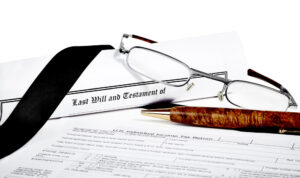Writing a will is one of the most important steps you can take to protect your family and your assets. Before you sit down with an attorney, gathering the right information will help make the process quicker and more effective. Here’s what you need to prepare:
1. A List of Your Assets and Debts
Start by making a list of everything you own. This includes:

- Real estate (homes, land, rental properties)
- Bank accounts and investment accounts
- Retirement plans, such as 401(k)s and IRAs
- Vehicles, boats, and other valuable property
- Personal belongings, such as jewelry, art, and collectibles
- Business interests, if you own a company
You should also list any outstanding debts, including mortgages, car loans, and credit card balances. Knowing what you owe can help you decide how to handle these obligations in your will.
2. Who Will Inherit Your Assets?
Decide who will receive your property and belongings. This could include family members, friends, or charities. You can divide your assets however you choose, but it’s important to be specific to avoid confusion or disputes later.
3. Naming an Executor
An executor is the person responsible for carrying out the instructions in your will. This includes paying off debts, handling paperwork, and distributing assets to beneficiaries. Choose someone who is responsible, organized, and willing to take on this role. You may also want to name a backup executor in case your first choice is unable to serve.
4. Guardian for Minor Children
If you have children under 18, choosing a guardian is one of the most important decisions you will make. This person will be responsible for raising your children if something happens to you. Talk to the person in advance to make sure they are willing to take on this responsibility.
5. Special Instructions or Final Wishes
Your will can also include instructions for funeral arrangements, care for pets, or other final wishes. While these details are not legally required, they can help your loved ones honor your preferences.
Contact The Reecer Law Firm
Taking the time to gather information now will make the process of creating your will much easier. The Reecer Law Firm is here to help you every step of the way. We have an estate planning worksheet on our website that can be downloaded to assist with the process. Please call us at (940) 382-3168 or contact us for more information about how we can help you. Dena Reecer, founder and owner of The Reecer Law Firm PLLC, is Board Certified in Estate Planning and Probate Law by the Texas Board of Legal Specialization. Our office is located at 3105 Unicorn Lake Blvd., Denton, TX 76210.





